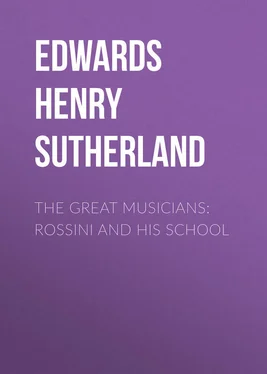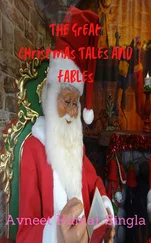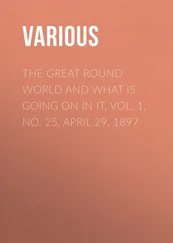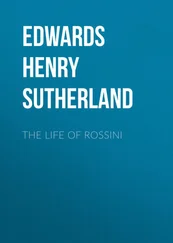Henry Edwards - The Great Musicians - Rossini and His School
Здесь есть возможность читать онлайн «Henry Edwards - The Great Musicians - Rossini and His School» — ознакомительный отрывок электронной книги совершенно бесплатно, а после прочтения отрывка купить полную версию. В некоторых случаях можно слушать аудио, скачать через торрент в формате fb2 и присутствует краткое содержание. Жанр: foreign_antique, foreign_prose, на английском языке. Описание произведения, (предисловие) а так же отзывы посетителей доступны на портале библиотеки ЛибКат.
- Название:The Great Musicians: Rossini and His School
- Автор:
- Жанр:
- Год:неизвестен
- ISBN:нет данных
- Рейтинг книги:5 / 5. Голосов: 1
-
Избранное:Добавить в избранное
- Отзывы:
-
Ваша оценка:
- 100
- 1
- 2
- 3
- 4
- 5
The Great Musicians: Rossini and His School: краткое содержание, описание и аннотация
Предлагаем к чтению аннотацию, описание, краткое содержание или предисловие (зависит от того, что написал сам автор книги «The Great Musicians: Rossini and His School»). Если вы не нашли необходимую информацию о книге — напишите в комментариях, мы постараемся отыскать её.
The Great Musicians: Rossini and His School — читать онлайн ознакомительный отрывок
Ниже представлен текст книги, разбитый по страницам. Система сохранения места последней прочитанной страницы, позволяет с удобством читать онлайн бесплатно книгу «The Great Musicians: Rossini and His School», без необходимости каждый раз заново искать на чём Вы остановились. Поставьте закладку, и сможете в любой момент перейти на страницу, на которой закончили чтение.
Интервал:
Закладка:
The first opera on a profane, or rather on a secular subject – for it is surely a mistake to regard everything not sacred as necessarily profane – was the descent of Orpheus into the infernal regions, drawn thither, as is well known, by his wife, Eurydice. The subject of Orpheus, alike lyrical and dramatic, has been a favourite one with composers for the last four hundred years, from Poliziano, who produced his Orfeo at Rome in 1440, up to Gluck, nearly three centuries later, and from Gluck down to Offenbach, who delights a good many persons in the present day. The Orfeo , which was brought out just four centuries ago, at Rome, bore no more resemblance, in a musical point of view, to a modern opera, than did the sacred musical plays before spoken of; and up to the year 1600 we meet with no musical work which bears more than a fundamental or general sort of resemblance to the modern opera. But almost immediately after the production of the second Eurydice a great reformer appeared. Monteverde, the innovator in question, changed, or at least gave new development to, the harmonic system of his predecessors, assigned far greater importance in his operas to accompaniments, and increased greatly both the number and the variety of the instruments in the orchestra, which, under his arrangement, included every kind of instrument known at the time. Monteverde employed a separate combination of instruments to announce the entry and return of each personage in his operas; a dramatic means made use of long afterwards by Hoffmann – better known by his fantastic tales than by his musical works – in his opera of Undine ; and which cannot but suggest a similar device employed with more system and with greater elaboration by Wagner.
Monteverde, like so many of his predecessors and followers, felt attracted by the story of Orpheus and Eurydice, and his first work was on the subject of Orfeo , which was produced in 1608 at the Court of Mantua; ordered, it may be, by that gallant but dissolute Duke of Mantua whom Signor Mario used to impersonate so admirably in Rigoletto . Monteverde's Orfeo contained parts for harpsichords, lyres, violas, double basses, a double harp with two rows of strings, two violins, besides guitars, organs, a flute, clarions, and even trombones. It is interesting to know that, apart from the instrumental combinations which announced the entry and return of each character, the bass-violas accompanied Orpheus; the violas, Eurydice; the trombones, Pluto; the organs, Apollo; while Charon – a most unsentimental personage, one would think – sang to the accompaniment of that sentimental instrument, the guitar.
I have, of course, no intention of following out the history of opera from Monteverde to Verdi. It will be sufficient to remark that Monteverde, the real founder of opera in something like its present form, produced a number of works at Venice, until at last the fame of the Venetian operas spread throughout Italy, so that by the middle of the seventeenth century the new entertainment was established at Verona, Bologna, Rome, Turin, Naples, and Messina. Opera, whatever its merits and defects, is essentially a royal and aristocratic entertainment. The drama was started by Thespis in a cart. The opera, on the other hand, was founded by popes, cardinals, and kings. The first operatic libretto, that of Poliziano's Orfeo , was the work of Cardinal Riario, nephew of Sixtus IV. Pope Clement IX. was the author of no less than seven libretti. The popes, indeed, used, in former days, to keep up an excellent theatre; and even in these degenerate times the taste for music has not, or had not until lately, died out at the Vatican.
It has been said that the history of opera, though Italy cannot claim to have been the one scene of its development, can be more conveniently because more continuously traced in Italy than in the various European countries where it has been cultivated, and where, in the case of three of these countries – Italy, Germany, and France, – it has made distinct advances. Nor, in considering the history of opera in Italy, is it necessary to observe its progress in Italy generally. It is sufficient to note the changes through which it passed at Naples alone. From Scarlatti (end of the seventeenth to the middle of the eighteenth century) to the immediate predecessors of Rossini, the history of the development of the opera in Italy is indeed the history of its development at Naples; and though, unlike previous celebrated composers, Rossini did not pursue his studies at Naples, he soon made Naples his head-quarters, and produced at the San Carlo theatre between the years 1815 and 1823 all his best Italian operas in the serious style: Otello , for instance, La Donna del Lago and Semiramide .
Scarlatti, the founder of the great Neapolitan school, studied at Rome under Carrissimi; and he is memorable in musical history as having given new development to the operatic air, while he introduced for the first time measured recitative. Of Scarlatti's immediate followers, Logroscino and Durante, the former introduced concerted pieces and the dramatic finale which afterwards received new development at the hands of Piccinni. This important feature to which modern opera owes so much of its importance and so much of its effect, was introduced into serious opera by Paisiello. Paisiello, like Scarlatti, Logroscino and Durante, was professor at the Conservatorio of Naples; and under his guidance were formed Jomelli, Piccinni, Sacchini, Guglielmi, and Cimarosa. The particular innovations due to Piccinni and Paisiello have already been mentioned. Cimarosa composed the best overtures which, up to his time, the Italian school could boast of, and he was the first to introduce quartets and other concerted pieces in the midst of dramatic action; not, that is to say, as ornaments at the end of an act, which hitherto had been the place conventionally assigned to them, but as integral parts of the musical drama. This innovation occurs for the first time in Il Fanatico per gli antichi Romani , which Cimarosa composed in 1773. It was not until nineteen years afterwards that this master produced his Matrimonio Segreto . But meanwhile Cimarosa had been completely distanced by Mozart, who, himself a great inventor, and, so to say, anticipator, adopted moreover everything that was worth adopting in the methods of all his contemporaries and predecessors.
To resume, in as few words as possible, the history of opera in Italy up to the time of Rossini, this form of art was at first nothing but recitative, or recitative with a chorus at the end of each act. Then occasional airs were introduced, then duets; and it is not until the middle of the eighteenth century that we find an example of an operatic trio. Quartets and dramatic finales followed in due course; and while the Italians had been developing new methods of employing the solo voices, Gluck had given prominence to the chorus as a dramatic factor, and had cultivated choral writing with the happiest effect. Other Germans, with Haydn foremost among them, had produced new orchestral combinations, until at last Mozart joined to the vocal forms of the Italians the instrumental forms of the Germans, while developing and perfecting both. Rossini introduced quite gradually into Italian opera those reforms which are particularly associated with his name; and perhaps in no other way could he have got them accepted. But he might, had he felt so disposed, have borrowed them one and all in a piece from the works of Mozart.
Let it be remembered, however, as a matter of fact, that when in 1813 Rossini produced Tancredi , which marks the commencement of the reforms introduced by him into serious opera, he had enjoyed no opportunity of seeing any of Mozart's works on the stage. Probably he had studied the music of Mozart, as we know him to have studied that of Haydn, in score; but it was not until 1814 that Don Giovanni , nor until 1815 that the Marriage of Figaro , was performed for the first time in Italy at the Scala theatre.
Читать дальшеИнтервал:
Закладка:
Похожие книги на «The Great Musicians: Rossini and His School»
Представляем Вашему вниманию похожие книги на «The Great Musicians: Rossini and His School» списком для выбора. Мы отобрали схожую по названию и смыслу литературу в надежде предоставить читателям больше вариантов отыскать новые, интересные, ещё непрочитанные произведения.
Обсуждение, отзывы о книге «The Great Musicians: Rossini and His School» и просто собственные мнения читателей. Оставьте ваши комментарии, напишите, что Вы думаете о произведении, его смысле или главных героях. Укажите что конкретно понравилось, а что нет, и почему Вы так считаете.












